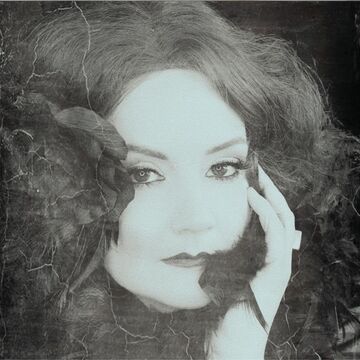

Ruth Margraff
Professor
Contact
Bio
Professor, Writing (2007). BA, Cedarville University; MFA, Brown University. RUTH MARGRAFF has been called a leader in the avant garde for her “audaciously original" (Moscow Times) poetics that provide “layer after layer of richly textured emotion...and imminent danger” (Dallas Morning News). She has been critically acclaimed for her 6 martial arts operas with composer Fred Ho for the Apollo, Guggenheim Museum, LaMama, Brooklyn Academy of Music, CAMI and her work on SEVEN began touring the world in 2008 introduced by Diane von Furstenberg, and in 2010 by Hillary Clinton with Meryl Streep at the Broadway Hudson Theater.
Playwriting/Poetry/New Opera: Mirror Butterfly; Previously Blue; Anger/Fly; Three Graces; Temptation of the Fresh Voluptuous; Cafe Antarsia Ensemble; Seven; Locket Arias; Stadium Devildare; The Cry Pitch Carrolls; The Elektra Fugues; Night Vision; Deadly She-Wolf Assassin At Armageddon, Voice of the Dragon 1,2,3; Judges 19: Black Lung Exhaling; All Those Violent Sweaters; Red Frogs; Night Parachute Battalion; The State of Gristle; Centaur Battle of San Jacinto; Wallpaper Psalm. Performances: various festivals and venues throughout USA; UK; Canada; Russia; Romania; Serbia; Hungary; Ireland; Italy; Greece; Turkey; Slovenia; Czech Republic; Croatia; France; Austria, Sweden; Japan; Egypt; India, Azerbaijan. Awards: Rockefeller Foundation; McKnight Foundation; Jerome Foundation; Fulbright Foundation; National Endowment for the Arts; Theater Communications Group; Fulbright; New York State Council on the Arts; Illinois Arts Council; Arts International; Trust for Mutual Understanding of New York, CultureConnect. Her work is published by Innova Records, Dramatists Play Service, American Theatre, Theater Forum, Performing Arts Journal, Playscripts, Inc., Backstage Books, Autonomedia, New Village Press, NoPassport Press, Lexington Books/Roman & Littlefield. She is a member of Theater Without Borders, and alum of New Dramatist and Playwrights’ Center and Chicago Dramatists.
Personal Statement
I value writing as art. I teach writing as a gymnasium for the soul. I listen very deeply to my students' raw intuition, their voice, their eyes, the way they sit and breathe. Their nostalgia is written in the music of how far they reach, what they fear, where they want to go. I have trained myself to enter the architectural aesthetic of each page, each new textual content or framing. To teach, I have to read from inside each world as a proscenium beyond my own point of view. An artist has to know how to use weapons of dissonance and tools of collaboration. Writing is ransacking folly, centrifugal labor, and strange fruit.
Current Interests
I write vocal art in the edges of theater, music, and poetry. My lyrics spring from displacement and unbridled presence. When I started writing martial arts operas with composer Fred Ho in 1997, violence was familiar to me from my own cascades of hysteria, black-boxed recordings of disaster, caged desire, and slit voices of vengeance. My characters speak/sing, live and love beyond their means. My work has disrupted the comforts of commercial realism and the anti-theatricality of more ironic multimedia experimentation currently in vogue. I am drawn to elicit a distinctly female point of view by foregrounding the interiority and abstraction of "provincial," "alamkara," or neo-baroque passions. I see multilinear subtext as political and crucial to coexistence. Lately I'm colliding fine art with streaks of street, operatic gypsy blues, and soliloquies layered in seams of dissent. My long-term artistic goal is to push the form of American opera into a more working-class and less Eurocentric direction. My writing has lately grown more cubist/painterly, contrapuntal, and surreal. I pressure various palettes of language to resist the complacence of corporate clarity, monolithic intimidation, cultures of fear, and rampant intolerance for the ornaments of thick description.